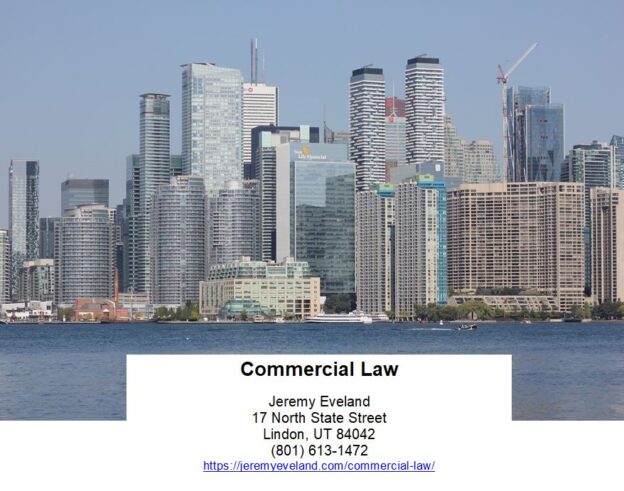-
Attorney at Law
- Introduction
- The Benefits of Working with a Contract Lawyer in Lindon, Utah
- What to Look for in a Contract Lawyer in Lindon, Utah
- Common Contract Law Issues in Lindon, Utah and How to Resolve Them
- How to Find the Right Contract Lawyer in Lindon, Utah
- Understanding Contract Law in Lindon, Utah: What You Need to Know
- What is a Breach of Contract?
- Why You Need A Contract Lawyer near Lindon Utah to Help You.
“Contract Lawyer Lindon Utah: Your Trusted Legal Partner for All Your Contract Needs”
Introduction
Contract Lawyer Lindon Utah is a law firm that specializes in providing legal services to businesses and individuals in the Lindon area. Our team of experienced attorneys is dedicated to providing the highest quality of legal services to our clients. We understand the complexities of contract law and strive to provide our clients with the best possible legal advice and representation. Our attorneys have extensive experience in drafting, negotiating, and litigating contracts, as well as providing advice on contract disputes. We are committed to providing our clients with the best possible legal services and to helping them achieve their goals.
The Benefits of Working with a Contract Lawyer in Lindon, Utah
Working with a contract lawyer in Lindon, Utah can provide a number of benefits to individuals and businesses. A contract lawyer can help to ensure that all parties involved in a contract are aware of their rights and obligations, and can provide advice on how to best protect those rights. Additionally, a contract lawyer can help to ensure that all parties involved in a contract are in agreement with the terms and conditions of the contract.
A contract lawyer in Lindon, Utah can provide advice on the best way to draft a contract that is legally binding and enforceable. A contract lawyer can also review existing contracts to ensure that they are legally sound and that all parties involved are in agreement with the terms and conditions of the contract. Additionally, a contract lawyer can provide advice on how to negotiate the terms of a contract, as well as how to resolve any disputes that may arise.
A contract lawyer in Lindon, Utah can also provide assistance in the event of a breach of contract. A contract lawyer can help to ensure that all parties involved in a contract are aware of their rights and obligations, and can provide advice on how to best protect those rights. Additionally, a contract lawyer can help to ensure that all parties involved in a contract are in agreement with the terms and conditions of the contract.
Finally, a contract lawyer in Lindon, Utah can provide assistance in the event of a dispute. A contract lawyer can provide advice on how to best resolve a dispute, as well as how to protect the rights of all parties involved. Additionally, a contract lawyer can provide advice on how to negotiate the terms of a contract, as well as how to resolve any disputes that may arise.
Overall, working with a contract lawyer in Lindon, Utah can provide a number of benefits to individuals and businesses. A contract lawyer can help to ensure that all parties involved in a contract are aware of their rights and obligations, and can provide advice on how to best protect those rights. Additionally, a contract lawyer can help to ensure that all parties involved in a contract are in agreement with the terms and conditions of the contract. Finally, a contract lawyer can provide assistance in the event of a breach of contract or dispute.
What to Look for in a Contract Lawyer in Lindon, Utah
When looking for a contract lawyer in Lindon, Utah, it is important to consider a few key factors. First, it is important to find a lawyer who is experienced in contract law and has a proven track record of success. It is also important to find a lawyer who is knowledgeable about the laws and regulations in the state of Utah. Additionally, it is important to find a lawyer who is willing to take the time to understand the specifics of your case and provide sound legal advice.
It is also important to find a lawyer who is accessible and responsive to your needs. You should be able to easily contact your lawyer and receive timely responses to your questions and concerns. Furthermore, it is important to find a lawyer who is willing to work with you to create a contract that meets your needs and protects your interests.
Finally, it is important to find a lawyer who is affordable and offers competitive rates. You should be able to find a lawyer who is willing to work within your budget and provide quality legal services.
By considering these factors, you can ensure that you find a contract lawyer in Lindon, Utah who is experienced, knowledgeable, accessible, and affordable.
Common Contract Law Issues in Lindon, Utah and How to Resolve Them
Lindon, Utah is subject to the same contract law issues as any other state in the United States. These issues can arise in a variety of contexts, from business contracts to real estate transactions. It is important to understand the basics of contract law in order to ensure that any agreement is legally binding and enforceable.
The first issue to consider is the formation of a contract. In order for a contract to be legally binding, it must meet certain criteria. The parties must have the capacity to enter into a contract, meaning they must be of legal age and of sound mind. The parties must also have an agreement, which is typically evidenced by an offer and acceptance. Additionally, there must be consideration, which is something of value exchanged between the parties.
The second issue to consider is the terms of the contract. The terms of the contract must be clear and unambiguous in order to be enforceable. If the terms are vague or open to interpretation, the contract may be deemed unenforceable. Additionally, the terms must be legal and not violate any laws or public policy.
The third issue to consider is the performance of the contract. Both parties must fulfill their obligations under the contract in order for it to be enforceable. If one party fails to perform, the other party may be able to seek damages or other remedies.
The fourth issue to consider is the breach of the contract. If one party fails to fulfill their obligations under the contract, the other party may be able to seek damages or other remedies. Additionally, the non-breaching party may be able to terminate the contract and seek restitution.
The fifth issue to consider is the enforcement of the contract. If one party fails to fulfill their obligations under the contract, the other party may be able to seek damages or other remedies. Additionally, the non-breaching party may be able to seek an injunction to prevent the breaching party from continuing to breach the contract.
In order to resolve contract law issues in Lindon, Utah, it is important to understand the basics of contract law and to ensure that any agreement is legally binding and enforceable. Additionally, it is important to seek legal advice if any issues arise. An experienced attorney can help ensure that any contract is properly drafted and that any disputes are resolved in a timely and efficient manner.
How to Find the Right Contract Lawyer in Lindon, Utah
Finding the right contract lawyer in Lindon, Utah can be a daunting task. It is important to take the time to research and find a lawyer who is experienced and knowledgeable in contract law. Here are some tips to help you find the right contract lawyer in Lindon, Utah:
1. Ask for referrals. Ask friends, family, and colleagues for referrals to contract lawyers in Lindon, Utah. This is a great way to get an idea of who is available and who has a good reputation.
2. Research online. Look for contract lawyers in Lindon, Utah online. Check out their websites and read reviews from past clients. This will give you an idea of their experience and expertise.
3. Schedule a consultation. Once you have narrowed down your list of potential lawyers, schedule a consultation with each one. This will give you an opportunity to ask questions and get a better understanding of their experience and qualifications.
4. Ask questions. During the consultation, ask questions about their experience, qualifications, and fees. Make sure you understand their fees and any other costs associated with their services.
5. Make a decision. After the consultation, take some time to consider your options and make a decision. Choose the lawyer who you feel is the best fit for your needs.
By following these tips, you can find the right contract lawyer in Lindon, Utah. Take your time and do your research to ensure you find the best lawyer for your needs.
Understanding Contract Law in Lindon, Utah: What You Need to Know
Contract law in Lindon, Utah is an important part of the legal system. It is important to understand the basics of contract law in order to protect yourself and your business. This article will provide an overview of contract law in Lindon, Utah and what you need to know.
Contracts are legally binding agreements between two or more parties. In order for a contract to be valid, it must include certain elements. These elements include an offer, acceptance, consideration, and a meeting of the minds. The offer must be clear and definite, and the acceptance must be unconditional. Consideration is the exchange of something of value between the parties, such as money or goods. Finally, there must be a meeting of the minds, meaning that both parties must understand and agree to the terms of the contract.
In Lindon, Utah, contracts must be in writing in order to be enforceable. Oral contracts are not enforceable in Lindon, Utah. Additionally, contracts must be signed by both parties in order to be valid.
Contracts can be terminated in a variety of ways. In Lindon, Utah, contracts can be terminated by mutual agreement, breach of contract, or impossibility of performance. Mutual agreement is when both parties agree to end the contract. Breach of contract occurs when one party fails to fulfill their obligations under the contract. Impossibility of performance occurs when it is impossible for one or both parties to fulfill their obligations under the contract.
It is important to understand contract law in Lindon, Utah in order to protect yourself and your business. If you are entering into a contract, make sure that you understand all of the terms and conditions and that you are comfortable with them. Additionally, make sure that the contract is in writing and signed by both parties. Finally, if you are unsure about any aspect of the contract, it is important to seek legal advice.
What is a Breach of Contract?
A breach of contract is a violation of any of the terms or conditions of a contract by one or more of the parties involved. It can occur when one party fails to fulfill their obligations as outlined in the contract, or when one party does not perform their duties as agreed upon. Breaches of contract can be either material or non-material. Material breaches are those that go to the heart of the contract and substantially affect the other party’s rights or obligations. Non-material breaches are those that do not affect the other party’s rights or obligations.
When a breach of contract occurs, the non-breaching party may be entitled to certain remedies, such as damages, specific performance, or rescission. Damages are monetary compensation for the losses suffered by the non-breaching party due to the breach. Specific performance is an order from the court requiring the breaching party to fulfill their obligations as outlined in the contract. Rescission is the cancellation of the contract, and the parties are returned to the position they were in before the contract was formed.
Why You Need A Contract Lawyer near Lindon Utah to Help You.
If you are involved in a contract dispute in Lindon, Utah, it is important to seek the advice of a contract lawyer. A contract lawyer can help you understand the legal implications of your contract and provide you with the best possible outcome. A contract lawyer can also help you negotiate a settlement or represent you in court if necessary.
Contracts are legally binding documents that outline the terms and conditions of an agreement between two or more parties. A contract lawyer can help you understand the legal implications of your contract and ensure that all parties involved are in agreement. A contract lawyer can also help you negotiate a settlement or represent you in court if necessary.
Contract lawyers are experienced in contract law and can provide you with the best advice and representation. They can help you understand the legal implications of your contract and provide you with the best possible outcome. They can also help you negotiate a settlement or represent you in court if necessary.
Contract lawyers can also help you draft a contract that is legally binding and enforceable. They can help you understand the legal implications of your contract and provide you with the best possible outcome. They can also help you negotiate a settlement or represent you in court if necessary.
Contract lawyers can also help you resolve disputes that arise from a contract. They can help you understand the legal implications of your contract and provide you with the best possible outcome. They can also help you negotiate a settlement or represent you in court if necessary.
If you are involved in a contract dispute in Lindon, Utah, it is important to seek the advice of a contract lawyer. A contract lawyer can help you understand the legal implications of your contract and provide you with the best possible outcome. A contract lawyer can also help you negotiate a settlement or represent you in court if necessary. With the help of a contract lawyer, you can ensure that your rights are protected and that you receive the best possible outcome.
Areas We Serve
We serve individuals and businesses in the following locations:
Salt Lake City Utah
West Valley City Utah
Provo Utah
West Jordan Utah
Orem Utah
Sandy Utah
Ogden Utah
St. George Utah
Layton Utah
South Jordan Utah
Lehi Utah
Millcreek Utah
Taylorsville Utah
Logan Utah
Murray Utah
Draper Utah
Bountiful Utah
Riverton Utah
Herriman Utah
Spanish Fork Utah
Roy Utah
Pleasant Grove Utah
Kearns Utah
Tooele Utah
Cottonwood Heights Utah
Midvale Utah
Springville Utah
Eagle Mountain Utah
Cedar City Utah
Kaysville Utah
Clearfield Utah
Holladay Utah
American Fork Utah
Syracuse Utah
Saratoga Springs Utah
Magna Utah
Washington Utah
South Salt Lake Utah
Farmington Utah
Clinton Utah
North Salt Lake Utah
Payson Utah
North Ogden Utah
Brigham City Utah
Highland Utah
Centerville Utah
Hurricane Utah
South Ogden Utah
Heber Utah
West Haven Utah
Bluffdale Utah
Santaquin Utah
Smithfield Utah
Woods Cross Utah
Grantsville Utah
Lindon Utah
North Logan Utah
West Point Utah
Vernal Utah
Alpine Utah
Cedar Hills Utah
Pleasant View Utah
Mapleton Utah
Stansbury Par Utah
Washington Terrace Utah
Riverdale Utah
Hooper Utah
Tremonton Utah
Ivins Utah
Park City Utah
Price Utah
Hyrum Utah
Summit Park Utah
Salem Utah
Richfield Utah
Santa Clara Utah
Providence Utah
South Weber Utah
Vineyard Utah
Ephraim Utah
Roosevelt Utah
Farr West Utah
Plain City Utah
Nibley Utah
Enoch Utah
Harrisville Utah
Snyderville Utah
Fruit Heights Utah
Nephi Utah
White City Utah
West Bountiful Utah
Sunset Utah
Moab Utah
Midway Utah
Perry Utah
Kanab Utah
Hyde Park Utah
Silver Summit Utah
La Verkin Utah
Morgan Utah
Contract Lawyer Lindon Utah Consultation
When you need help from a Contract Lawyer in Lindon Utah call Jeremy D. Eveland, MBA, JD (801) 613-1472 for a consultation.
Jeremy Eveland
17 North State Street
Lindon UT 84042
(801) 613-1472
Related Posts
Business Succession Lawyer Spanish Fork Utah
Corporate Attorney St. George Utah
Business Strategy and Consulting
Business Succession Lawyer Roy Utah
Business Lawyer St George Utah
Estate Planning Lawyer Ogden Utah
Business Succession Lawyer Pleasant Grove Utah
Market Analysis For Business Antitrust Merger
Are Legal Expenses for Estate Planning Deductible?
Common Legal Issues That Should Involve A Business Lawyer
[geocentric_weather id=”3367aa87-8e4d-4982-bd3f-853e5d006be7″]
[geocentric_about id=”3367aa87-8e4d-4982-bd3f-853e5d006be7″]
[geocentric_neighborhoods id=”3367aa87-8e4d-4982-bd3f-853e5d006be7″]
[geocentric_thingstodo id=”3367aa87-8e4d-4982-bd3f-853e5d006be7″]
[geocentric_busstops id=”3367aa87-8e4d-4982-bd3f-853e5d006be7″]
[geocentric_mapembed id=”3367aa87-8e4d-4982-bd3f-853e5d006be7″]
[geocentric_drivingdirections id=”3367aa87-8e4d-4982-bd3f-853e5d006be7″]
[geocentric_reviews id=”3367aa87-8e4d-4982-bd3f-853e5d006be7″]







